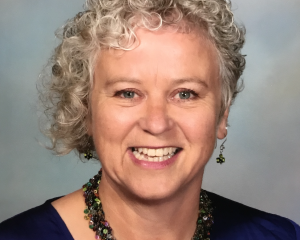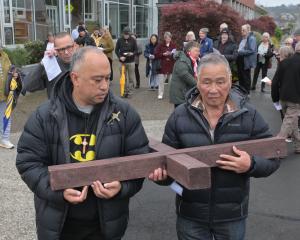Co-founder Vi Cottrell was in Dunedin last week and talked about the development of the business at the University of Otago on Friday.
About 100 people attended the presentation to hear her talk about how it all began in 1969 and grew to make $8.8 million in sales annually.
She and her husband Richard answered an advertisement for an adviser to a resettlement scheme for Tibetan refugees and ended up packing up their two children and moving from Christchurch to Northern India.
Her job was to find overseas markets for carpets woven by the refugees.
After two years, they returned to New Zealand but wanted to continue supporting the refugees, so they bought $1000 worth of carpets and sold them in Christchurch.
This led to the founding of the small not-for-profit society, Trade Aid Importers, in 1973.
The organisation is a development agency which uses trade, paying a fair price for goods, to enable people and communities to progress.
It now imports 3000 products from 75 producer partners around the globe, which are sold in 30 Trade Aid stores in New Zealand.
Dunedin's store has been operating in some form since 1975 and Mrs Cottrell said it was one of the more professional, "lively" stores and was having great success.
"This is a very practical and useful way of making a difference for people," she said.
While Trade Aid's focus continued to be helping the poor and disadvantaged in developing countries, she knew the best way to do that was to meet consumer demand.
Marketing managers worked with producers to ensure that the products made were saleable.
One group in India used to produce large amounts of lace, but adapted its craft to make toys, instead.
Mrs Cottrell believed the future of Trade Aid could be in embarking on joint partnerships with producers, particularly in coffee and food.
"What if the coffee producers owned half of the coffee business?"
Advertisement












